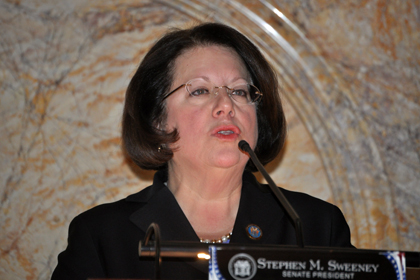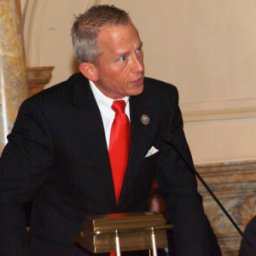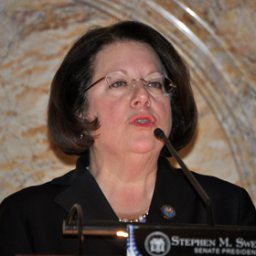
TRENTON – A bill sponsored by Senator Linda R. Greenstein that would ensure New Jersey’s first responders receive medical care and compensation for conditions resulting from their actions in the line of duty, particularly medical conditions that may not manifest until long after the event, gained final legislative approval today by the Assembly with a vote of 45-23.
“Our first responders run toward danger to protect us, while the rest of us seek safety. They put their health and safety at risk every day to serve others, and are the first exposed to any serious communicable diseases or biological toxins in the line of duty,” said Senator Greenstein (D-Middlesex, Mercer). “If they suffer harm while carrying out their work as public safety workers, they should receive the care and treatment they need, no matter how much later their symptoms start following exposure to hazardous substances.”
Senator Greenstein noted that emergency personnel who worked in the aftermath of the 9/11 attacks were exposed to carcinogens that have proven to cause cancer and lung disease. Her bill would carve out an area of workers’ compensation that presumes illnesses such as cancer are directly correlated to the job, yet still provides an avenue for appeal.
The legislation is named after the late Thomas P. Canzanella, a Hackensack firefighter who spent several weeks at Ground Zero after 9/11 and championed coverage of firefighter occupational diseases, including cancer.
The bill, S-264, would create a rebuttable presumption for workers’ compensation coverage – shifting the burden of proof from the employee to the employer – for any death or disability that arises from the physical impact injury experienced by the public safety worker during response to a terrorist attack, epidemic or other catastrophic emergency. The bill would apply to paid and volunteer firefighters, first aid or rescue squad members, police, corrections officers, nurses, medical technicians and other medical personnel.
“In a post-9/11 era, our current system of immediate cause and effect has proven inadequate to account for the delayed effects of toxic substances on first responders following exposure,” said Senator Greenstein. “This legislation looks after our public safety workers in New Jersey and ensures that no matter when symptoms occur, they will be protected.”
The September 11 attacks on the WorldTradeCenter in New York caused thousands of tons of toxic debris to enter the air in the aftermath of the attacks, leaving emergency responders and individuals in the area susceptible to increased health risks. Research into these toxins’ effects on rescue workers has been well-documented. A MemorialSloan-KetteringHospital doctor cited a 70 percent illness rate among first responders; a 2010 report of 14,000 rescue workers found that on average workers lost 10 percent of their lung function. Further, a 2012 study by The Journal of the American Medical Association reported that the incidences of prostate cancer, thyroid cancers and multiple myeloma was elevated among 9/11 rescue workers; and a recent Journal of Environmental Health Perspectives study found a 15 percent overall increased risk of cancer in World Trade Center rescue and recovery workers.
The bill would provide that any firefighter with seven or more years of service would receive a rebuttable presumption for workers’ compensation if they suffer an injury, illness or death caused by cancer.
The “Thomas P. Canzanella Twenty First Century First Responders Protection Act,” which passed the Senate last year by a vote of 22-12, now heads to the Governor’s desk for action.



